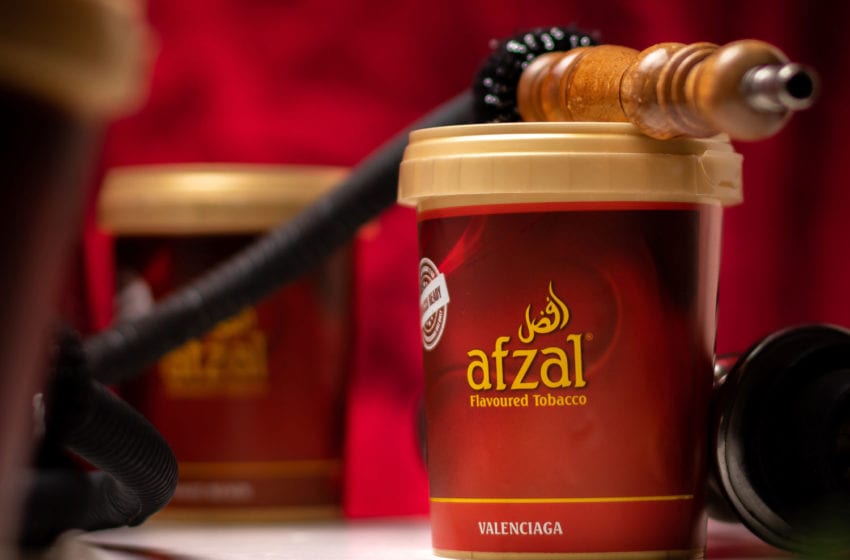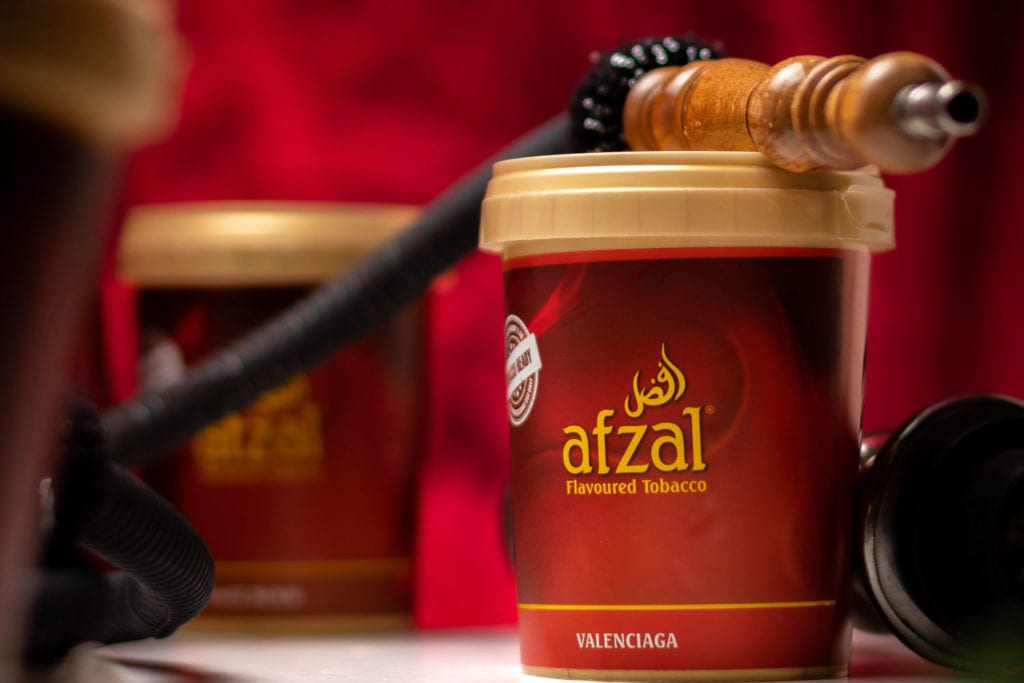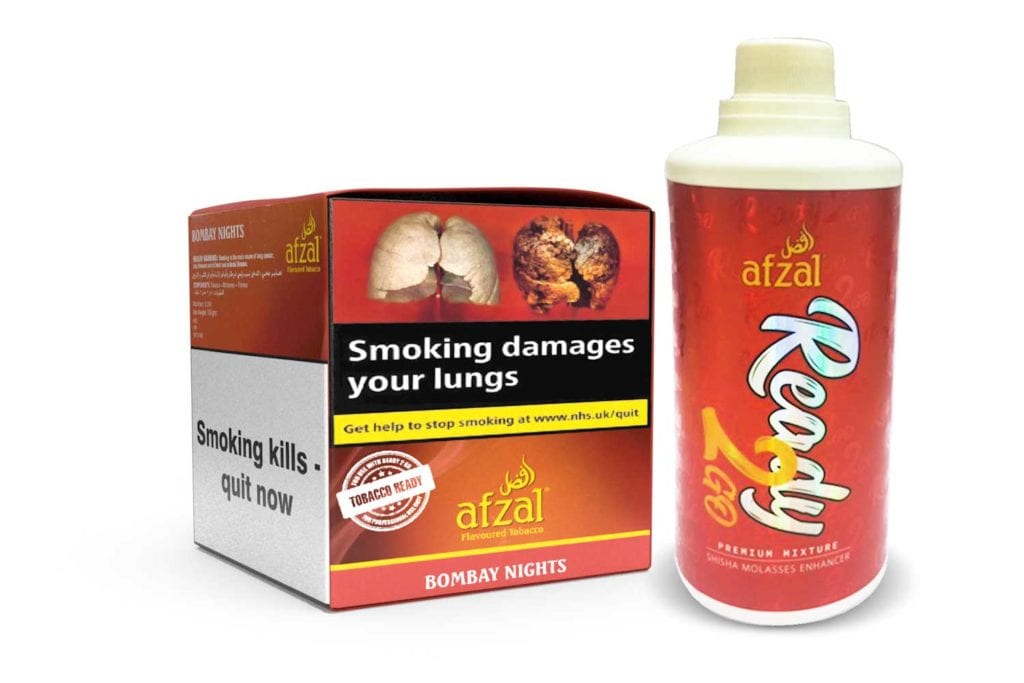Two-Stage Tobacco
- Also in TR Other Tobacco Products Print Edition
- July 1, 2020
- 0
- 14 minutes read


By separating their product into two components, ASUK and ASI can offer U.K. consumers shisha at a considerably lower price.
By George Gay
It’s easy to understand why traditional cigarettes have an enduring appeal for many of those who enjoy consuming nicotine. I don’t want this to sound like an advertisement for smoking, but cigarettes must surely deliver the highest pleasure-to-effort ratio of any tobacco or nicotine product.
Many snus users—and others—will balk at this, but I would argue that whereas the effort needed to consume snus is less than that needed to smoke a cigarette, this advantage is more than outweighed because the range of pleasures (lighting the cigarette, having something to hold, watching the cloud of smoke … ) enjoyed when smoking a cigarette is wider than that of consuming snus. Of course, the consumption of tobacco as a cigar or in a Western-style pipe reproduces this range of cigarette pleasures, but, assuming the cigar or pipe smoke is not inhaled into the lungs, the level of nicotine satisfaction will probably fall short of that of cigarette smoking.
Based on this sort of assessment, shisha consumption also fails to match that of cigarettes. The effort needed, from setting up a hookah to cleaning it afterward, is considerable. And somebody in the know told me recently, apropos of something else, that a five-a-day cigarette smoker who enjoyed a two-hour shisha smoking session might, at the end of the session, light a cigarette, apparently to enjoy the nicotine fix not provided by the shisha.
Splitting the product
The problem here, though, is that this sort of assessment is based on a number of assumptions. It assumes, for instance, that putting effort in is a negative, and this is not necessarily the case. Some vapers like the convenience of the pod system where they plug in and go, but others like to treat their habit more as a hobby. In other words, if you want a quick fix, you’ll probably go for a cigarette or a pod vaping system, but if you want to relax and are willing to set aside some time, you’ll probably choose to enjoy a big cigar or an open vaping system, perhaps in the company of like-minded people.
And this is where shisha’s star starts to shine. As is well known, shisha smoking is more often than not a social activity conducted in lounges where people gather with their friends to relax. For many, especially those who eschew alcohol, a shisha lounge can be the equivalent of a pub. And the act of preparing a hookah and smoking shisha is one in which at least part of this effort morphs into a ritual made pleasurable by the skills required.
Which is something that Afzal Shisha U.K. (ASUK) has plugged into in the U.K. where, because of a weight-based tobacco tax system, the retail price of shisha can prove to be prohibitively high and where, as a result, illicit products are believed to be widely available and used. ASUK has partnered with Afzal Soex India (ASI), one of the world’s largest shisha tobacco producers, to develop a novel product that, while it requires some additional effort on the part of the user, significantly reduces the excise duty that otherwise applies to shisha in the U.K.
During an interview in London in March, Faizan Aatif, a scientist (immunology and pharmacology) by profession and one of two partners in ASUK, told me that, whereas 1 kg of standard shisha typically contained as little as 160 grams of tobacco with the rest comprising a blend of casing, sugar syrups, honey, glycerine and flavors, duty was applied to the full 1 kg. This might seem unfair, but from the point of view of HR Revenue, I guess, it is the only way to calculate duty without allowing manufacturers to self-declare the amount of tobacco in their blends, a system that would be open to abuse.

Aatif said it had taken a year of working with ASI’s R&D department to develop what he described as ASUK’s unique two-stage shisha tobacco, Afzal Ready2Go, which the end user buys as two separate components. One of these comprises the tobacco, which attracts duty, while the other comprises the liquid enhancer, which doesn’t.
It is not difficult to imagine how such a product reduces the tax payable and, therefore, the retail price. ASUK’s flavor-infused shisha tobacco, which is processed by ASI in India from a blend of neutral European flue-cured Virginia leaf, weighs in at 140 grams, while the liquid enhancer, which is also manufactured by ASI and which can be used with any of the flavored tobaccos, weighs in at 360 grams.
To make a 500 gram batch of shisha, the end user adds the liquid to the tobacco in a supplied, resealable bag and massages the bag to mix the two components thoroughly. The contents of the bag are then left to marinate at room temperature for a minimum of 48 hours, when it is ready to be smoked, though the optimum steeping time is two weeks, by which time all the juice has been absorbed by the leaf.
The U.K. tobacco duty rate as of February 2020 (before the March budget), was £125.20 ($156.25) per kg for “other smoking tobacco,” the classification applicable to shisha tobacco, so the duty on a traditional 500 gram pack would be £62.60, pushing the retail price to about £125, including VAT. But in the case of the two-component product, duty is applied only to the 140 grams of tobacco, so the duty payable is £17.53, allowing the retail price to be pushed down to £70 for 500 grams, which is enough for about 25 smoking sessions.
Aatif says that as long as the two-component product is allowed to steep for the required time, it performs as well as ASI’s regular products, which he described as world renowned. In part, this is because, unlike other two-component products, the flavor is applied to ASUK’s tobacco in a process that ensures it is uniformly distributed and absorbed by the tobacco rather than the liquid enhancer when the flavor distribution is dependent in part on the mixing and marinating process performed by the user. Of course, Aatif is aware that future regulations on tobacco and flavors might mean that ASUK will have to rethink the way that it offers its two-component product.
ASUK, which is the sole distributor of ASI’s shisha in the U.K. but which offers only the two-stage product, is run by Aatif with his business partner and childhood friend, Mohammed Sheikh, who is a healthcare professional—specifically, a dentist. But the word “run” hardly describes things. Aatif and Sheikh are the company’s only two full-time employees, though product dispatch is handled by the same warehouse people who dispatch the parts for Aatif’s core business, performance cars, and they employ social media influencers and shisha industry bloggers for promotions and events such as shisha lounge demonstrations of ASUK’s products.

A passion for tobacco
One question that arises here is why a scientist and a dentist are involved with shisha, and the answer seems to be a passion for the product and its consumption, something that they did to relax in the evenings during their time at university. “We have a passion for shisha tobacco and have applied an incredible amount of science to the development of our product and making our tobacco the very best that it can be,” Aatif said in a note that he sent to me prior to our meeting. “We pride ourselves on our dedication to perfecting our bespoke blends.”
Additionally, Aatif says that he became disenchanted with science because Britain did not look after its scientists. But after speaking with him, I came away with the impression that the lure of entrepreneurship would have drawn him away in any case because his performance cars business, something he started as a hobby while still at university, is also a passion as well as a business. To be running one business on the grounds that you have a passion for what you are selling might be seen as the sign of a dilettantish businessman, but to run two on the grounds of passion needs real commitment.
But despite the passion, ASUK is run as a tight ship from which sales are made only to commercial lounges or through cashless, online retail transactions, e-commerce being another area of interest for Aatif. As well as having only two full-time employees, the company is run not out of some high-rent, big-city location but from of a space carved out of the car parts warehouse, which is based in Dundonald, a village in Ayrshire on the west coast of Scotland, but which is nevertheless only a 30 minutes’ drive from the Glasgow airport.
Aatif says ASUK’s sales are rising month on month at both lounges and retail, so while the first shipment from India of his two-component product amounted to 60 kg and came by airfreight, shipments are now of 500 kg and arrive by sea. He is confident about the future of his business to the extent that he is currently looking for a bonded warehouse, which will save his company from having to pay duty up front.
Although ASUK launched with a single paan-flavored product in London in January last year (and followed up with eight more flavors in 2019 and another four by February 2020), this isn’t the blind optimism of a newcomer. Aatif is well aware that shisha is a tobacco product that comes with all of the negative baggage that the category carries. Before ASUK was formed, he owned an architect-designed shisha lounge and is therefore able to act as an unofficial consultant to his lounge-owning customers, not only in respect of issues such as equipment hygiene and tax obligations but also on how to comply with regulations requiring that such lounges are 50 percent permanently open while providing a warm, welcoming environment, even during U.K. winters.
Health concerns into perspective
This shisha lounge requirement points to an issue that I ignored at the start of this piece when talking about the pleasure-to-effort ratio of various tobacco products. In saying that cigarettes delivered the highest pleasure-to-effort ratio, I took no notice of the fact that, for a lot of smokers, health concerns will be taking the edge off the pleasures associated with cigarettes. And this raises the question of how shisha smoking shapes up within the risk debate, a question that has a slightly different focus in the U.K. where, apparently, smokers prefer a lighter smoke—one that delivers flavors with few, if any, tobacco notes.
In writing the above, I have used the phrase “shisha smoking,” and in doing so, I have done only what Aatif did during our interview. But at one point, he said that shisha consumption was vaping rather than smoking. And there is truth in this because shisha tobacco is not ignited but heated—to a temperature of about 250 degrees Celsius in the case where modern charcoals are used. And this is useful in putting into perspective a widely circulated story that a one-hour shisha smoking session is the equivalent of smoking 100 cigarettes. The equivalence, Aatif said, was in the volume of smoke not in the constituents of the smoke. And this is a perfectly reasonable assumption to make even though there is little scientific evidence to support it. Those constituents cannot possibly be the same as anybody who has smoked a cigarette would realize when trying to imagine the effect of smoking 100 cigarettes in an hour, even if such were possible.
But there is a wider health issue at the moment—the coronavirus. If fear of Covid-19 reduces the footfall in U.K. shisha lounges significantly, that could cause a problem for a distributor of shisha, especially since shisha smoking is largely a social activity. Then again, perhaps people will merely switch to smoking shisha at home, and ASUK does also sell the wherewithal for that—hookah pipes, mouthpieces, charcoal …. And there are other opportunities that might present themselves. The Afzal Ready2Go product is at the moment exclusive to the U.K., but Aatif says that inquiries are coming from elsewhere. One door closes and another opens.



